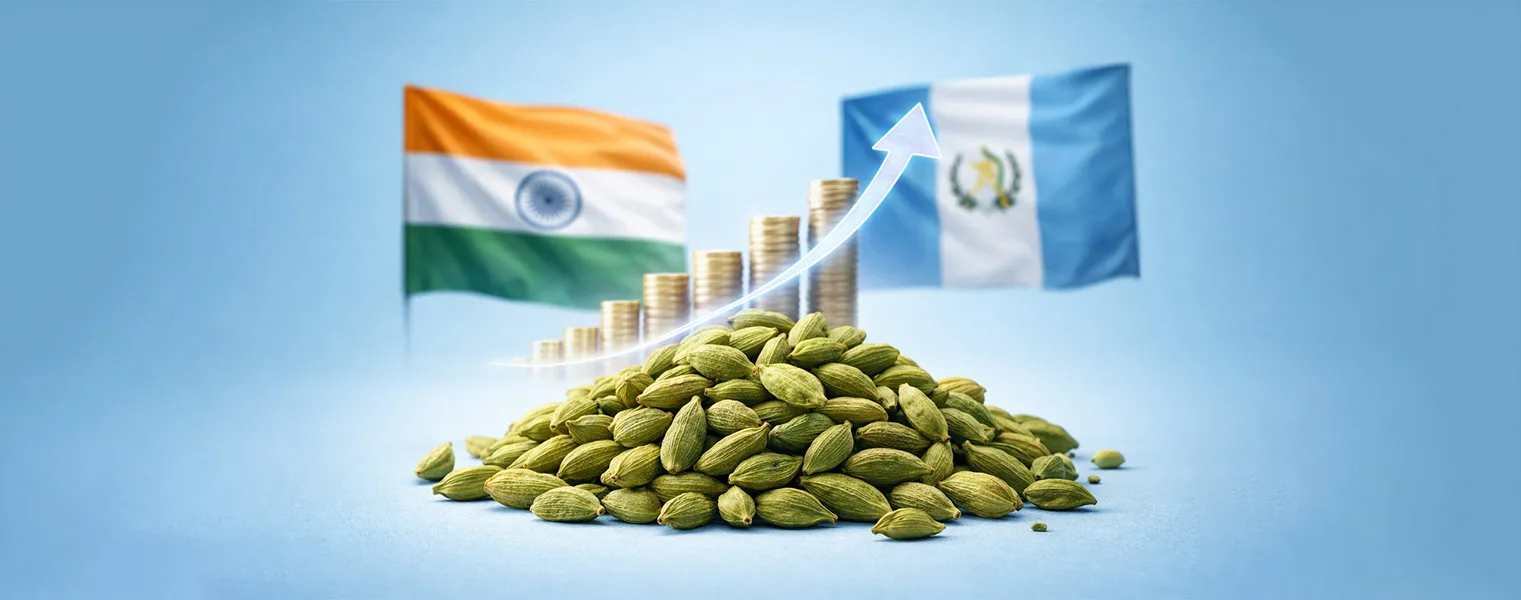Global Coffee Prices Plunge as Brazil and Vietnam Face Production Challenges – What’s Next for the UAE Market?
The global coffee market is experiencing dynamic shifts driven by changes in production, pricing, and international trade policies, with key trends affecting major producers like Brazil, Vietnam, and Indonesia. For the UAE market, these developments are particularly relevant as demand for high-quality coffee products continues to grow.

Global Production Overview
-
Brazil:
- Production Forecast: For the 2024/25 crop year, Brazil's coffee output is projected to decline by 3 million bags, bringing the total to 63 million bags. This drop is attributed to adverse weather conditions, particularly a severe drought that affected bean sizes and reduced cultivation areas. Despite recent rains aiding the blossoming of coffee trees, concerns about the impact of the drought linger.
- Harvest Quality: The harvest quality remains uncertain as the coffee trees recover from these challenging conditions, and future output will depend on ongoing weather patterns.
- Export Markets: Brazil continues to lead the global coffee trade, with the U.S., EU, and China as major export destinations. However, price volatility due to supply shortages may affect its competitive edge in these markets.
- Vietnam:
- Harvest Time: Vietnam is currently entering its coffee harvest season, which is expected to cause a temporary drop in global prices due to increased supply. Vietnam remains the world's second-largest coffee exporter, with its output contributing significantly to the global market.
- Production & Imports: While Vietnam is a top producer, it has seen a rapid rise in coffee imports—up 42% in volume and 104% in value for the first eight months of 2024. Most imports are raw coffee beans used in instant coffee production, sourced from countries like Brazil, Laos, Indonesia, and Colombia. The rising cost of local Robusta coffee has led to this import surge.
- Price Trends: Robusta futures have dropped by 3.9%, with prices settling at $4,868 per ton on the London exchange. This follows an 8% drop last week due to Vietnam’s increasing harvest. In contrast, domestic prices in Vietnam have also seen a decline, trading between 114,100 and 115,200 VND/kg.

- Indonesia:
- Growth in Exports: Indonesia’s coffee export market is expanding, with a 39.44% year-on-year increase in arabica exports and a 34.11% rise in robusta. The Indonesian Coffee Exporters Association (AEKI) projects continued growth in 2024, fueled by the harvest season and a boost in coffee bean supply. Traditional export destinations like Japan, Malaysia, Egypt, Germany, and the U.S. remain key markets for Indonesia.
- Trade Impact: The postponement of the European Union's Anti-Deforestation Law (EUDR) until 2025 provides some relief to Indonesian exporters, who were concerned about meeting compliance requirements. This delay is expected to stabilize export volumes in the near term.
Factors to Consider:
-
Price Trends:
- Coffee prices have been declining on both the London and New York exchanges, with significant drops in both Robusta and Arabica futures. Robusta prices fell to around $4,921/ton (a 3.7% decrease), while Arabica prices dropped by 1.7%.
- The price decline is driven by anticipated rainfall in Brazil, the world’s largest coffee producer, expected to support the flowering of coffee trees. However, Brazil’s overall production for the 2024/25 season is still expected to be lower by 3 million bags, reaching 63 million bags due to previous drought conditions.
- Vietnam, another major producer, is entering its harvest season, causing a short-term supply surge, which is contributing to the price drops. But Vietnam’s overall coffee output is also expected to decrease compared to previous years.
- There has been pressure on prices from an expected postponement of the EU’s anti-deforestation law (EUDR), which would ease delivery concerns for coffee exporters to Europe.

- Supply and Harvest Information:
- Brazil's coffee harvest has been negatively affected by a severe drought, reducing the size of coffee beans and impacting production. Although rain is expected to mitigate some losses, long-term production may still be lower.
- Vietnam is entering its coffee harvest season, but despite a temporary surge in supply, its output is expected to decrease overall. Indonesia, another key producer, is also seeing a robust coffee harvest with increased exports.
- Major exporters like Brazil, Vietnam, Indonesia, and Honduras are dealing with both harvest delays and weather-related challenges.

- Global Coffee Demand:
- The global coffee market is projected to grow significantly, from $132.13 billion in 2024 to $166.39 billion in 2029. This growth is largely driven by increasing coffee consumption, especially among youth, urbanization, and the health benefits of coffee.
- Demand in the UAE and the Middle East is likely to follow this global trend, especially with a focus on premium and specialty coffee products.
- Logistical Challenges:
- Port congestion and container shortages in regions like Uganda, Rwanda, and Ethiopia have provided some support to prices despite the overall price drop, indicating potential delays in supply chains that could impact availability in markets like the UAE.

Buy or Sell Recommendation:
-
Short-Term: If you're looking at short-term opportunities, buying coffee could be advantageous in the UAE. The current price drops present a chance to secure stock at lower rates, especially as Brazil and Vietnam's lower production forecasts suggest potential price rebounds in the coming months.
- Long-Term: For long-term strategies, it might be beneficial to sell off existing stock if prices begin to stabilize or rise after the harvest season. The anticipated delays in EU regulations and ongoing global demand growth could push prices back up, offering better profit margins later on. However, be cautious of further price drops if production exceeds expectations.
Impact of Trade Policies
Trade policies are also influencing the market. The European Commission’s proposed one-year delay in the EUDR implementation has provided a buffer for coffee-producing countries. This delay is particularly important for exporters like Brazil and Indonesia, who were facing pressure to comply with the stringent regulations aimed at preventing deforestation in coffee supply chains.

Outlook for the UAE Market
For the UAE, coffee imports are expected to remain robust as demand for specialty and premium coffee continues to grow. The UAE serves as a key hub for coffee trade in the Middle East, importing from major producers like Brazil, Vietnam, and Indonesia. Price trends in these markets will influence local import costs, while fluctuating global supply may present opportunities for buyers looking to stock up ahead of potential price increases in 2025.
FAQs
-
What are the main coffee-producing countries in 2024?
The main coffee-producing countries in 2024 include Brazil, Vietnam, and Indonesia. Brazil is the largest producer, followed by Vietnam, which is a key supplier of robusta beans. Indonesia is also expanding its coffee exports, particularly of arabica beans.
- How does the weather affect coffee production in Brazil?
Adverse weather conditions, such as the severe drought in Brazil, have a significant impact on coffee production. Droughts can reduce bean size and overall yields, leading to supply shortages and price increases. However, recent rains are helping to improve the outlook for future crops.
- What are the current coffee price trends in 2024?
Coffee prices have been fluctuating in 2024. Robusta futures dropped by 3.9% to $4,868 per ton, while arabica prices fell by 4.9% to 244.65 US cents/lb. These price changes are influenced by increased supply from Vietnam and weather conditions in Brazil.
- How is Vietnam's coffee import & export trend in 2024?
Vietnam's coffee imports have risen sharply in 2024, increasing by 42% in volume and 104% in value compared to the previous year. This surge is due to rising domestic coffee prices, leading to increased imports of raw coffee beans for instant coffee production.









